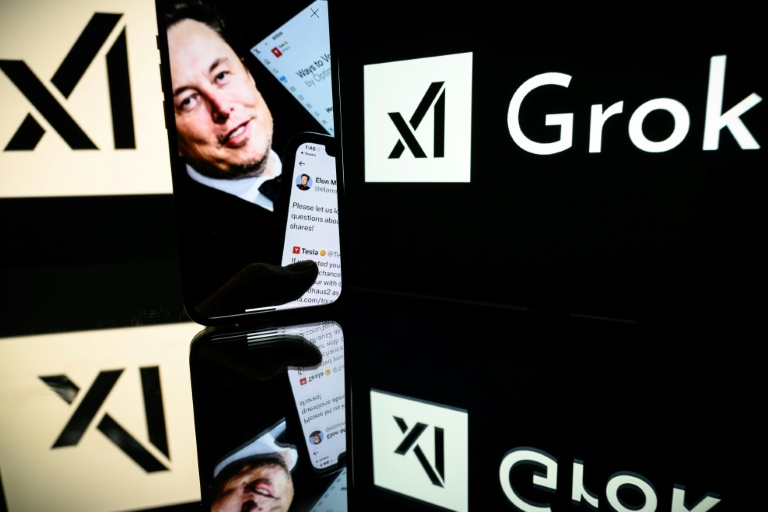Science
Researchers Flag Reliability Issues in Elon Musk’s Grokipedia

Elon Musk’s Grokipedia, an AI-driven encyclopedia launched by his company xAI, faces scrutiny over its sourcing practices, according to a study released by researchers from Cornell Tech. The report highlights that Grokipedia contains numerous citations from sources deemed “questionable” and “problematic,” raising concerns about its reliability as an information resource.
The research, which analyzed hundreds of thousands of articles on Grokipedia, indicates that the platform’s sourcing guidelines appear to have been significantly relaxed. As a result, the inclusion of unreliable references has become more prevalent, particularly concerning politically charged topics and elected officials. The study’s authors, Harold Triedman and Alexios Mantzarlis, stated, “It is clear that sourcing guardrails have largely been lifted on Grokipedia.”
One notable example cited in the study involves Grokipedia’s entry on the “Clinton body count,” a widely discredited conspiracy theory linking the deaths of various individuals to former President Bill Clinton and his wife, Hillary Clinton. This entry references InfoWars, a site known for disseminating misinformation. Additionally, the report mentions that Grokipedia articles frequently cite right-wing media outlets from the United States and India, alongside state media from China and Iran, as well as sites associated with anti-immigration, antisemitic, and anti-Muslim rhetoric.
The researchers further pointed out that Grokipedia often replicates text directly from Wikipedia, which it was designed to surpass. Articles not sourced from Wikipedia are reported to be 3.2 times more likely to reference sources classified as “generally unreliable” by the Wikipedia community. Furthermore, such articles are 13 times more likely to include sources that have been blacklisted by Wikipedia.
In response to requests for comment, xAI provided a brief auto-generated reply stating, “Legacy Media Lies.” Musk, who is known for his substantial financial support for various political endeavors, has previously criticized Wikipedia, labeling it “Wokepedia” and alleging bias against right-leaning viewpoints.
On March 7, 2024, Musk revealed plans to rebrand Grokipedia as “Encyclopedia Galactica,” stating it needs to reach a higher standard before the change occurs. He urged users on social media platform X to join xAI in creating a version of the Library of Alexandria, emphasizing his vision for a more reliable information source.
The founder of Wikipedia, Jimmy Wales, has dismissed allegations of bias against the platform, describing them as “factually incorrect.” In an interview with the BBC Science Focus podcast, he acknowledged that while there are areas for improvement, the community-driven model of Wikipedia fosters greater transparency and accountability compared to the rapid AI-generated content of Grokipedia.
Selena Deckelmann, Chief Product and Technology Officer at the Wikimedia Foundation, reinforced this sentiment, stating, “Unlike Grokipedia, which relies on rapid AI-generated content with limited transparency and oversight, Wikipedia’s processes are open to public review and rigorously document the sources behind every article.” She emphasized that Wikipedia’s collaborative approach ensures that no single entity can dominate or manipulate the information presented.
As Grokipedia continues to develop, its reliance on potentially unreliable sources raises significant questions about the future of information dissemination in an increasingly digital age. The growing concern among researchers and the public may influence how users approach this new platform and its claims of providing accurate and unbiased information.
-

 Education2 months ago
Education2 months agoBrandon University’s Failed $5 Million Project Sparks Oversight Review
-

 Lifestyle3 months ago
Lifestyle3 months agoWinnipeg Celebrates Culinary Creativity During Le Burger Week 2025
-

 Science3 months ago
Science3 months agoMicrosoft Confirms U.S. Law Overrules Canadian Data Sovereignty
-

 Health3 months ago
Health3 months agoMontreal’s Groupe Marcelle Leads Canadian Cosmetic Industry Growth
-

 Science3 months ago
Science3 months agoTech Innovator Amandipp Singh Transforms Hiring for Disabled
-

 Technology3 months ago
Technology3 months agoDragon Ball: Sparking! Zero Launching on Switch and Switch 2 This November
-

 Education3 months ago
Education3 months agoRed River College Launches New Programs to Address Industry Needs
-

 Technology3 months ago
Technology3 months agoGoogle Pixel 10 Pro Fold Specs Unveiled Ahead of Launch
-

 Technology1 month ago
Technology1 month agoDiscord Faces Serious Security Breach Affecting Millions
-

 Business2 months ago
Business2 months agoRocket Lab Reports Strong Q2 2025 Revenue Growth and Future Plans
-

 Science3 months ago
Science3 months agoChina’s Wukong Spacesuit Sets New Standard for AI in Space
-

 Education3 months ago
Education3 months agoAlberta Teachers’ Strike: Potential Impacts on Students and Families
-

 Technology3 months ago
Technology3 months agoWorld of Warcraft Players Buzz Over 19-Quest Bee Challenge
-

 Business3 months ago
Business3 months agoNew Estimates Reveal ChatGPT-5 Energy Use Could Soar
-

 Business3 months ago
Business3 months agoDawson City Residents Rally Around Buy Canadian Movement
-

 Technology1 month ago
Technology1 month agoHuawei MatePad 12X Redefines Tablet Experience for Professionals
-

 Education3 months ago
Education3 months agoNew SĆIȺNEW̱ SṮEȽIṮḴEȽ Elementary Opens in Langford for 2025/2026 Year
-

 Technology3 months ago
Technology3 months agoFuture Entertainment Launches DDoD with Gameplay Trailer Showcase
-

 Business3 months ago
Business3 months agoBNA Brewing to Open New Bowling Alley in Downtown Penticton
-

 Technology3 months ago
Technology3 months agoInnovative 140W GaN Travel Adapter Combines Power and Convenience
-

 Science3 months ago
Science3 months agoXi Labs Innovates with New AI Operating System Set for 2025 Launch
-

 Technology3 months ago
Technology3 months agoGlobal Launch of Ragnarok M: Classic Set for September 3, 2025
-

 Technology3 months ago
Technology3 months agoNew IDR01 Smart Ring Offers Advanced Sports Tracking for $169
-

 Technology3 months ago
Technology3 months agoDiscover the Relaxing Charm of Tiny Bookshop: A Cozy Gaming Escape










